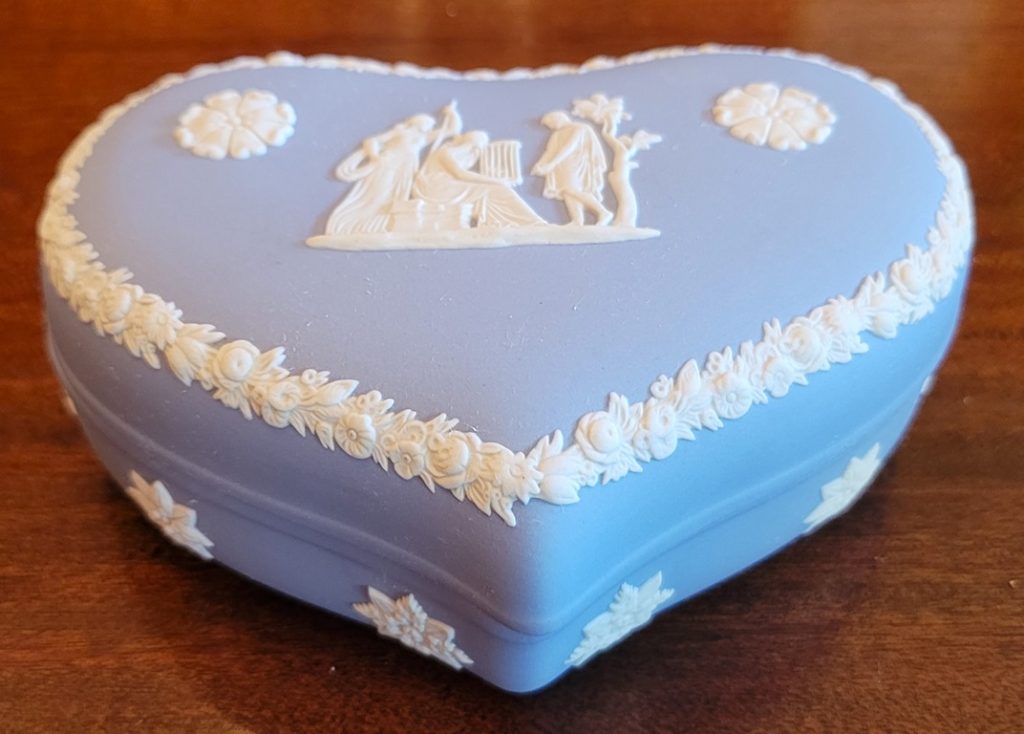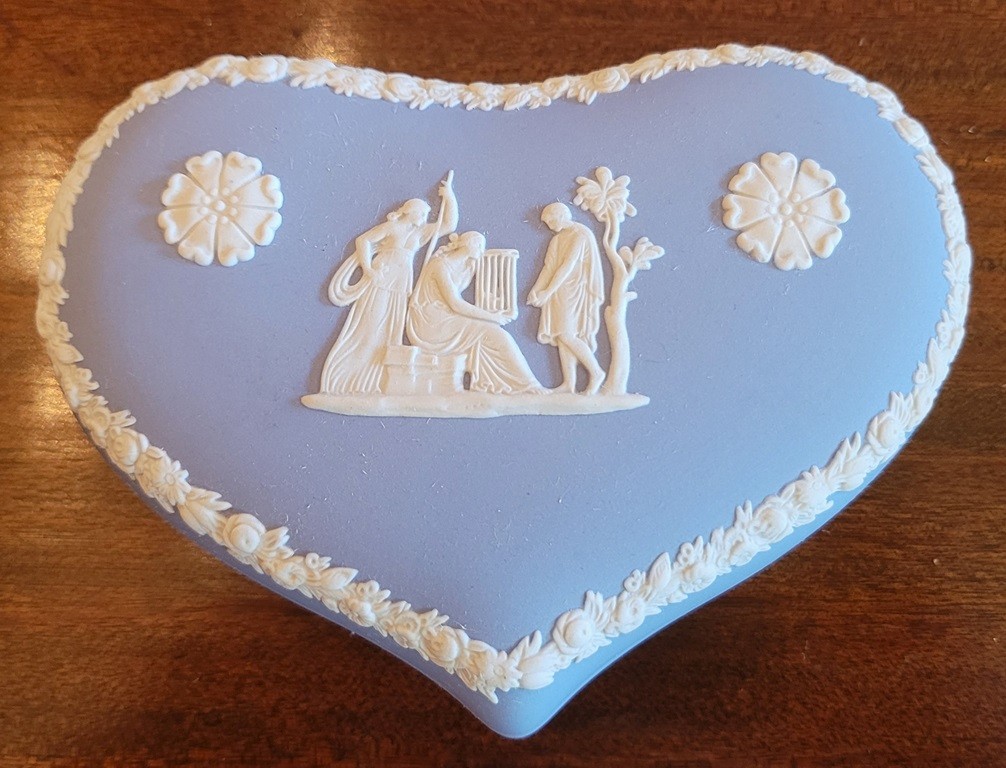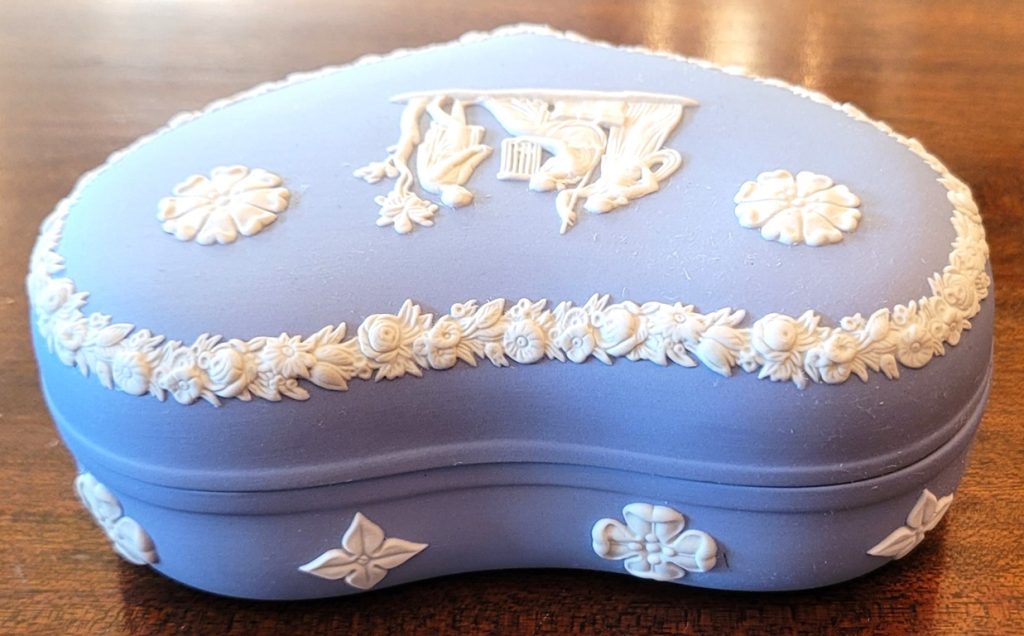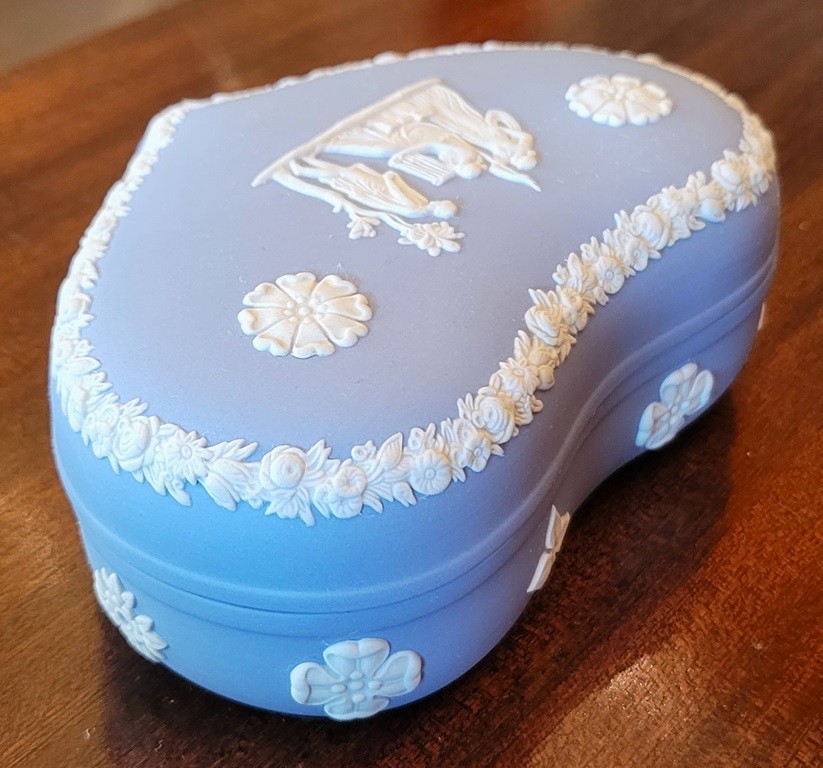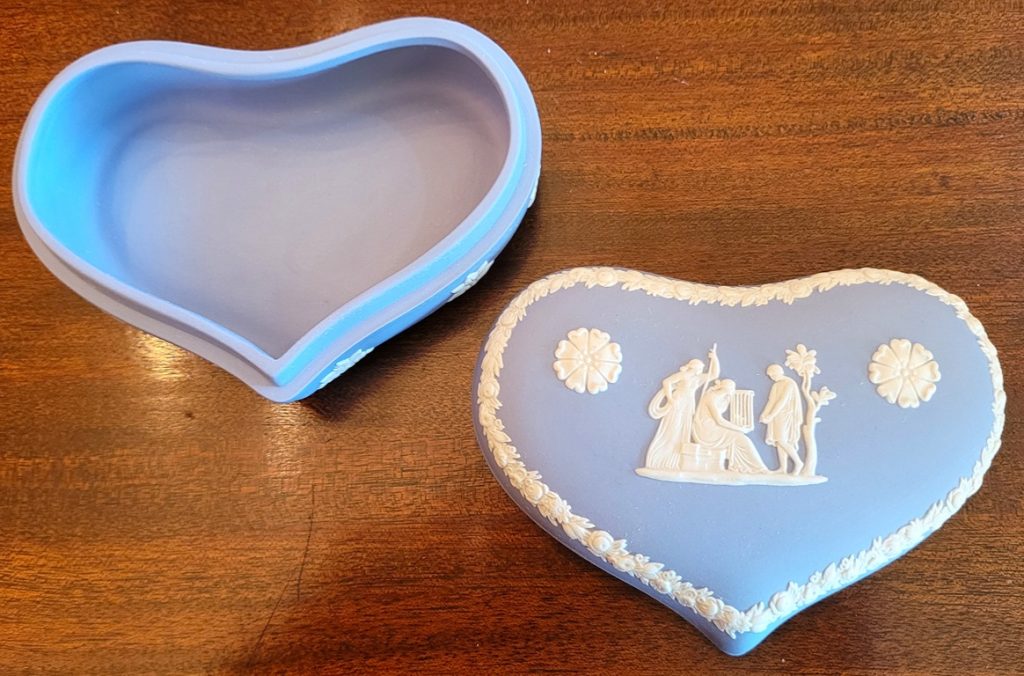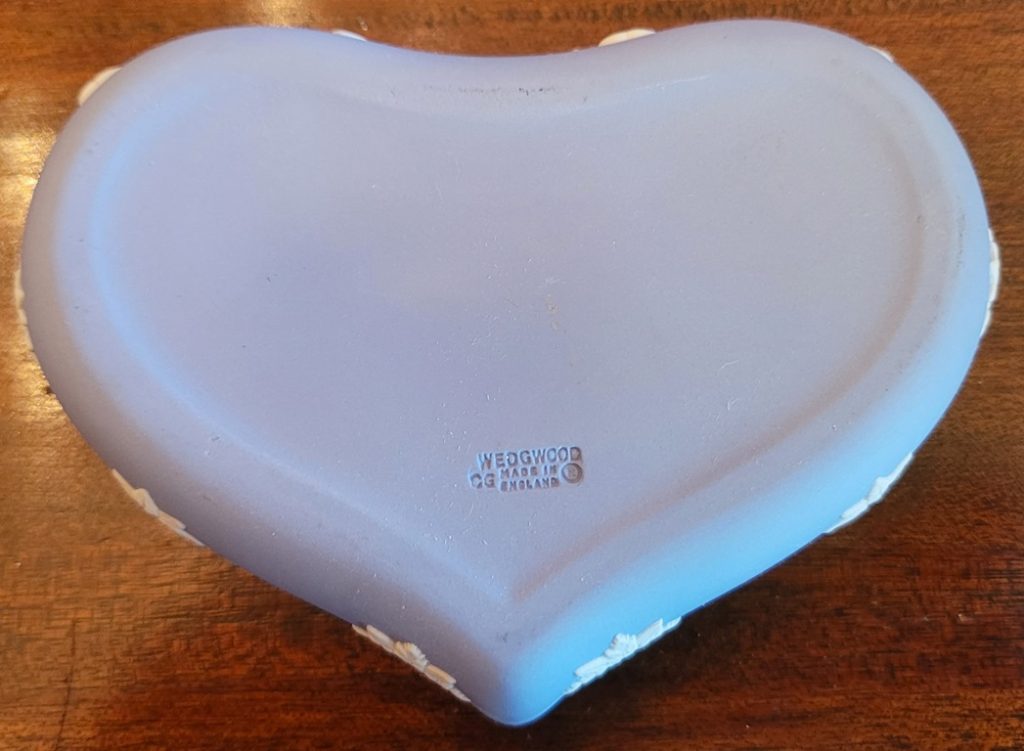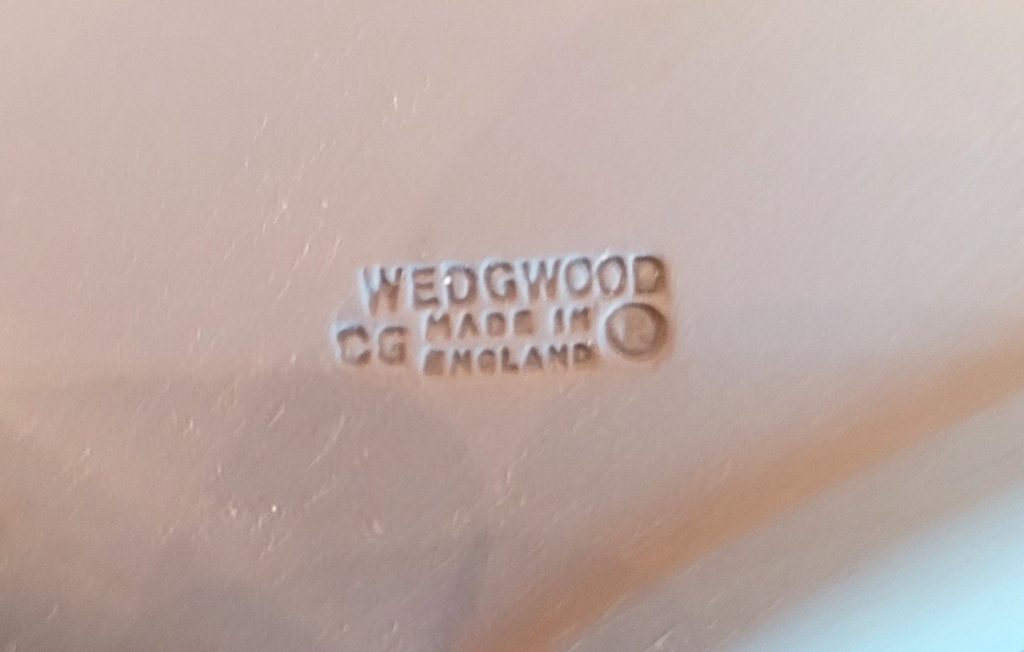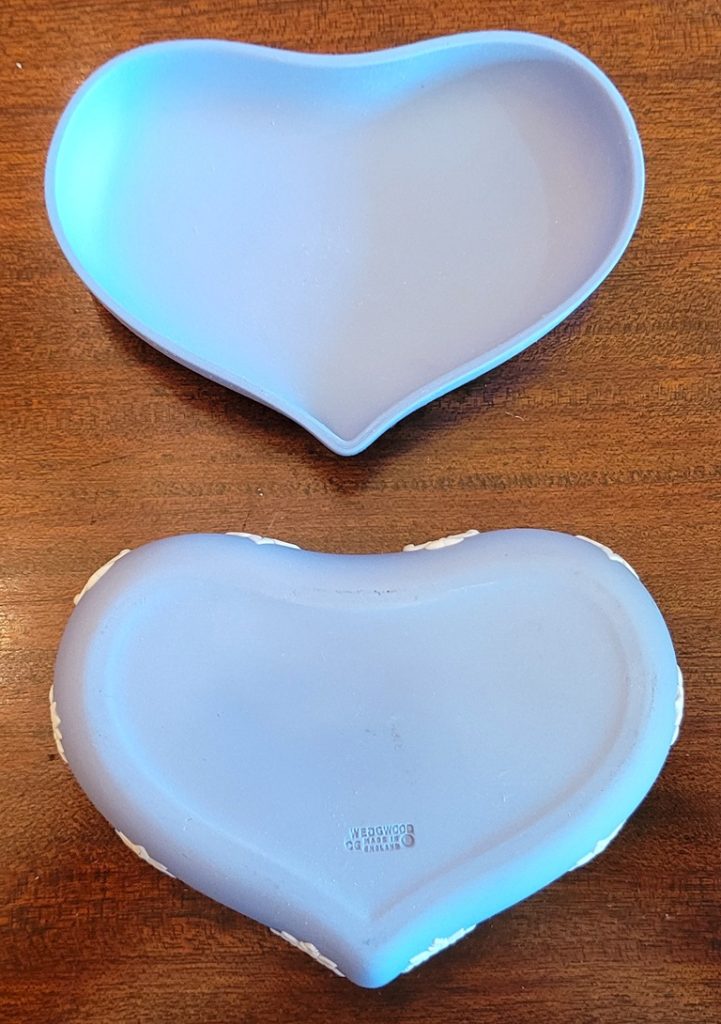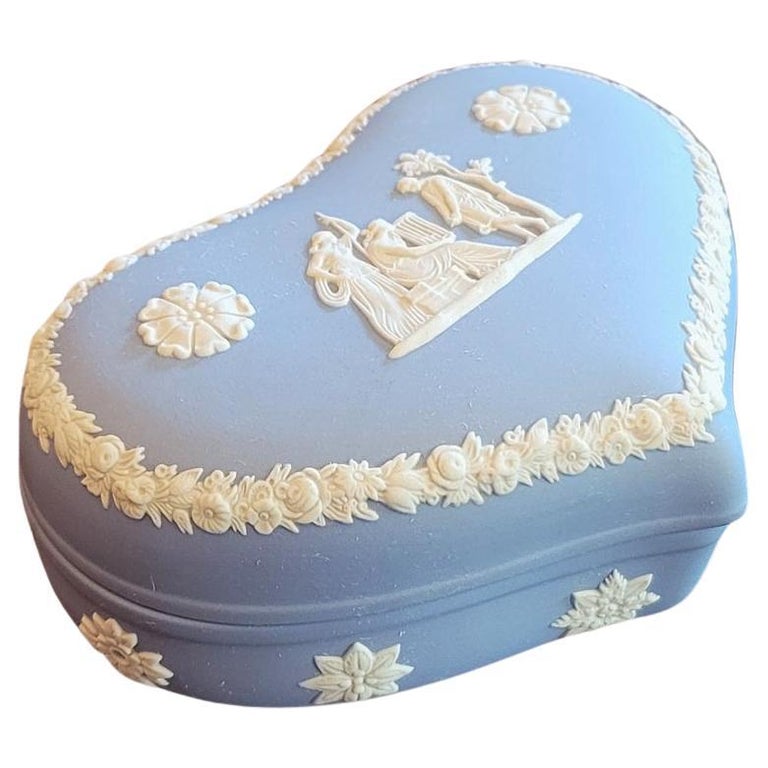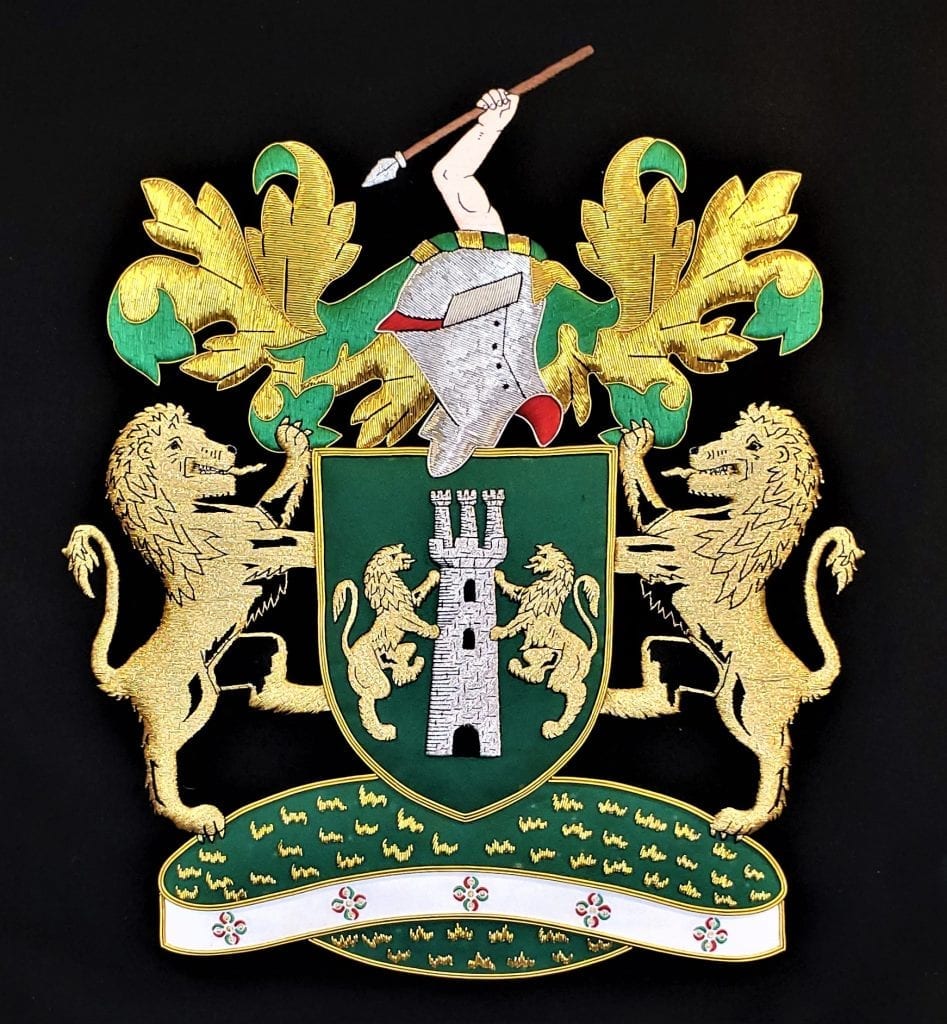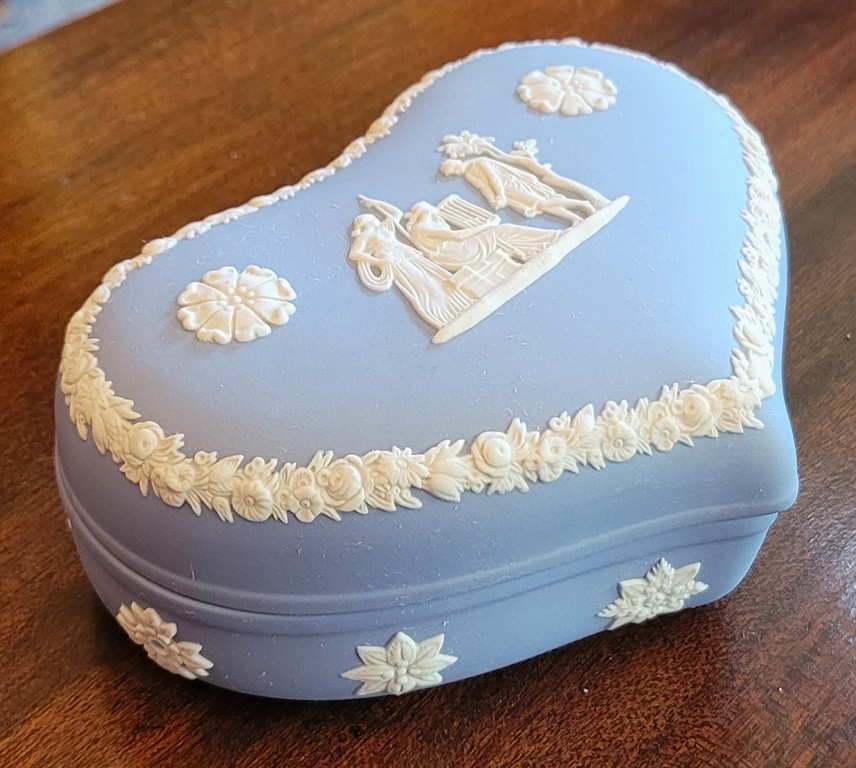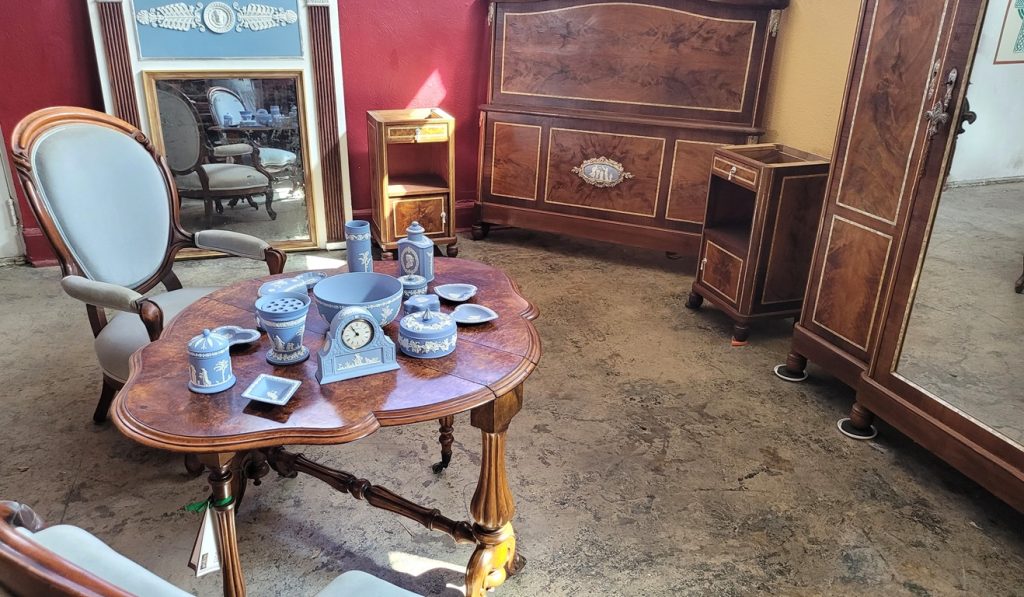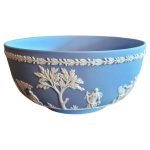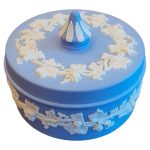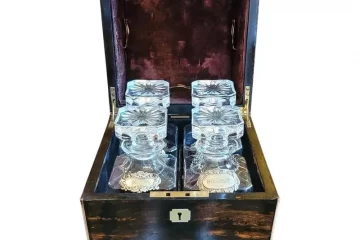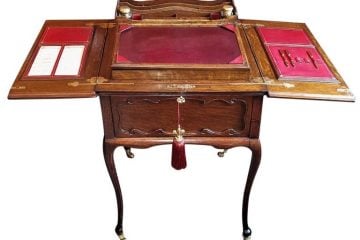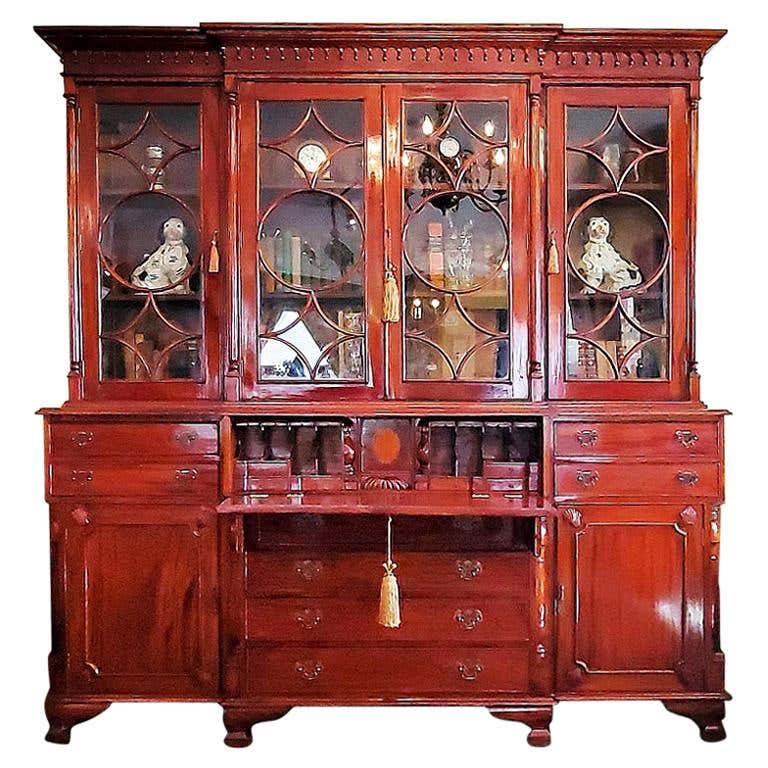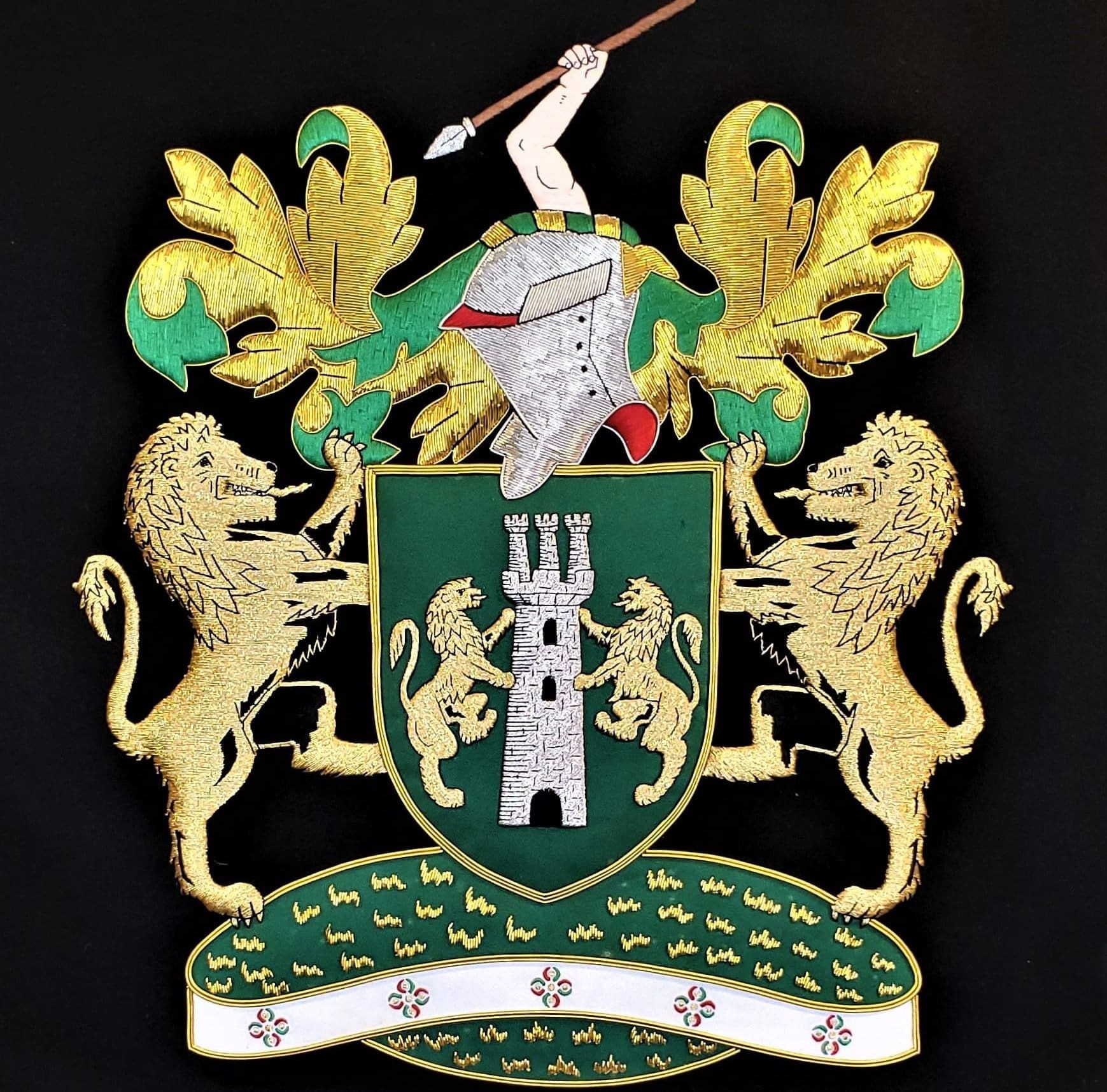Wedgwood Jasperware Pale Blue Lidded Heart Trinket Box
PRESENTING A LOVELY Wedgwood Jasperware Pale Blue Lidded Heart Trinket Box.
Made by Wedgwood in England circa 1960 and fully and properly marked/stamped on base.
Marked: “Wedgwood, Made in England …. “CG”.
Heart shaped lidded box with neoclassical cameo reliefs, on lid and sides.
In near mint condition with no chips or cracks.
Jasperware, or jasper ware, is a type of pottery first developed by Josiah Wedgwood in the 1770s. Usually described as stoneware, it has an unglazed matte “biscuit” finish and is produced in a number of different colours, of which the most common and best known is a pale blue that has become known as “Wedgwood blue“. Relief decorations in contrasting colours (typically in white but also in other colours) are characteristic of jasperware, giving a cameo effect. The reliefs are produced in moulds and applied to the ware as sprigs.
After several years of experiments, Wedgwood began to sell jasperware in the late 1770s, at first as small objects, but from the 1780s adding large vases. It was extremely popular, and after a few years many other potters devised their own versions. Wedgwood continues to make it into the 21st century. The decoration was initially in the fashionable Neoclassical style, which was often used in the following centuries, but it could be made to suit other styles. Wedgwood turned to leading artists outside the usual world of Staffordshire pottery for designs. High-quality portraits, mostly in profile, of leading personalities of the day were a popular type of object, matching the fashion for paper-cut silhouettes. The wares have been made into a great variety of decorative objects, but not typically as tableware or teaware. Three-dimensional figures are normally found only as part of a larger piece, and are typically in white. Teawares are usually glazed on the inside.
In the original formulation the mixture of clay and other ingredients is tinted throughout by adding dye (often described as “stained”); later the formed but unfired body was merely covered with a dyed slip, so that only the body near the surface had the colour. These types are known as “solid” and “dipped” (or “Jasper dip”) respectively. The undyed body was white when fired, sometimes with a yellowish tinge; cobalt was added to elements that were to stay white.
Link: https://en.wikipedia.org/wiki/Jasperware
Wedgwood Jasperware Pale Blue Lidded Heart Trinket Box
Provenance: From a Fine Mississippi Estate and originally acquired in England in the early 1960’s.
Condition: Near Mint.
Dimensions: 2.2 inches tall, 5.5 inches wide and 4 inches deep
SALE PRICE NOW: $300
